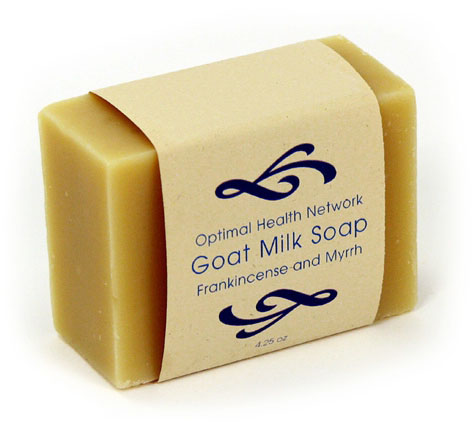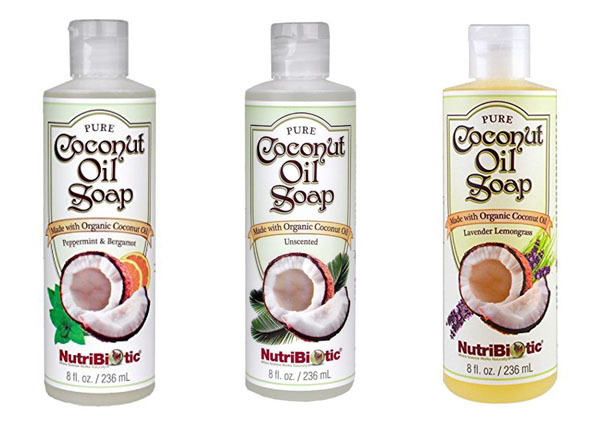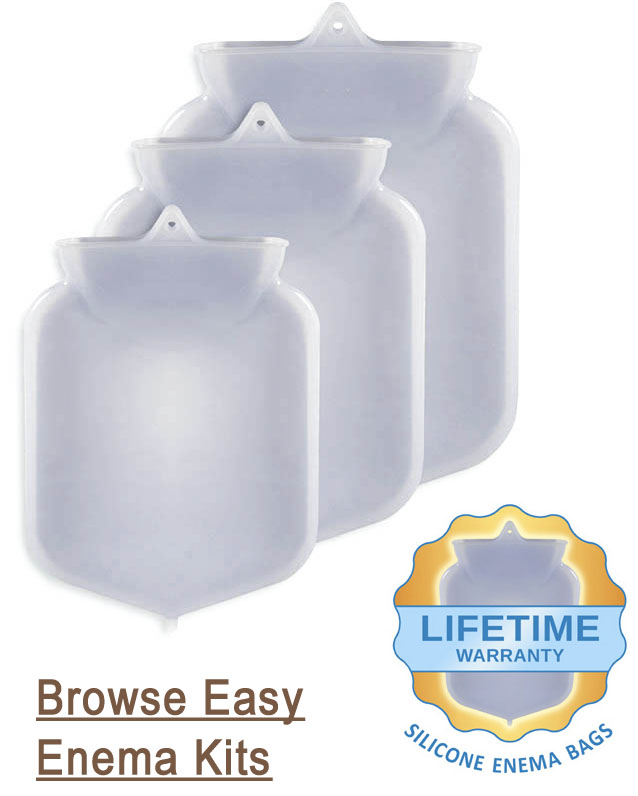Soap Suds Enemas
How To Stimulate Bowel Movement and Relieve Constipation
Recommended Enema Soaps
How Much Soap To Use
How To Avoid Cramping
Soap suds enemas have been around for decades, and are well-known as an effective way to stimulate bowel movement and relieve constipation. Soap suds enemas are safe and easy to do, but it's very important to use the right type and amount of soap in your enema for the best results.

Using too much soap in an enema, using the wrong kind of soap, or not following up a soap suds enema with a rinse enema afterward can all cause stomach cramping after the enema.
What Type of Soap Should I Use in an Enema?
What is the best soap enema solution? Can you use Dawn dish soap in an enema?
It's best to avoid all commercial dish or bath soaps (such as Dawn dish soap) that you might find at a grocery or drug store, even the ones labeled "natural". Never use commercial antibacterial soaps, or soaps with sodium lauryl sulphate. Using a soap with harsh chemicals in it can have a negative impact on the colon, and may actually damage the walls of the colon.
This is why I recommend using OHN's made-for-enema Frankincense and Myrrh Goat Milk Soap. Not only is this soap free of harsh or harmful chemicals, but it also contains butyric acid, which is the primary food source for the cells that line the colon walls. Low levels of butyric acid can contribute to health problems such as Crohn's Disease and irritable bowel syndrome (IBS), so it's extremely beneficial for your colon to receive the butyric acid in this soap. The butyric acid and frankincense and myrrh essential oils also help to reduce inflammation in the colon, which can help reduce risk of colon cancer and improve overall health.
▶︎ Buy Frankincense and Myrrh Goat Milk Soap
To use this goat milk soap in an enema, soak the bar of soap in a small bowl or cup of warm water for between 30 seconds to 2 minutes, depending on how strong you want the solution to be. Take the bar of soap out, set it somewhere to dry for storage and future use, and add the cup of soapy water to the rest of your filtered enema water.
We also offer our made-for-enema goat milk soap in Chamomile and Sage scent. The essential oils in this scent are extremely relaxing and beneficial to the colon. We find that some people experience even greater benefit from the soap suds enemas by alternating Frankincense and Myrrh with Chamomile and Sage soap each time they do an enema. Alternation of essential oils helps increase the diversity of good bacteria in your gut. Greater diversity in gut bacteria is associated with better overall health.
▶︎ Buy Chamomile and Sage Goat Milk Soap

If you are allergic to dairy, and are unable to use the goat milk soap, there are alternative options:
Our second enema soap recommendation is liquid coconut oil soap. This soap is sourced from sustainable, organic coconuts which are processed without chemicals to make pure, virgin coconut oil which is then organically saponified to create this soap. Use approximately 1 teaspoon of this soap per quart of water for your soap suds enema. This soap is also what I recommend using to clean your enema equipment.
▶︎ Buy Liquid Coconut Oil Soap
Dr. Bronner's Unscented Castile Soap is a third type of soap that is safe to use in enemas. I would recommend using the two soaps above before using castile soap, but Dr. Bronner's is made with natural ingredients and will also stimulate bowel movement without damaging the colon. (Without the therapeutics of the goat milk soap, however, it won't do much to improve colon health either. Keep this in mind.)
Castile soap is typically quite concentrated, so start off with a very small amount to make sure your body responds well to it and it does not cause cramping.
How Much Soap Should I Use in an Enema? How Can I Avoid Cramping?
The more soap you add to an enema, the more intensely it will stimulate your bowels. If you make the solution too strong, you may experience abdominal cramping. It's important to try to get the soap-to-water ratio correct in the enema, and use enough soap to help stimulate a bowel movement, but not so much that it will cause cramping. If you're new to soap suds enemas, start off with a weaker solution to see how your body responds.

Cramping can also occur if you do a soap suds enema and don't follow it up with a rinse enema. The soap enema is the first step in my 3-step enema series protocol, so in that protocol it is directly followed by two other enemas which help rinse the soap from the colon. If you don't plan to do an enema series, it's best to do a rinse enema with filtered water right after you do the soap suds enema to avoid cramping.
▶︎ Learn More about the Enema Series
Alternate Uses of Goat Milk Soap
Our goat milk soaps are also great soaps to use when bathing or washing your hands. They are all-natural, they smell lovely, and are good for your skin!
I also recommend using the Frankincense and Myrrh Goat Milk Soap if you are trying to heal hemorrhoids or anal fissures. The butyric acid and therapeutic essential oils help the tissues in your skin to heal more quickly. Wash the area around the hemorrhoid or fissure daily with this soap.
Conclusion
Soap suds enemas can be a beneficial tool to help relieve constipation for people of all ages. Be sure to use a quality, chemical-free soap, such as our Frankincense and Myrrh Goat Milk Soap, to help improve the health of your colon. Don't use too much soap in your enema solution, and follow the soap suds enema with a rinse enema or the other two steps in the enema series to avoid cramping.
▶︎ Learn More about Home Constipation Remedies
DISCLAIMER: This material is presented for informational purposes only and is not a substitute for medical advice, diagnosis, or prescribing from a licensed healthcare professional. We make no claim or guarantee for cure or relief of any specific symptom, medical condition, or disease when using any of the products or protocols referenced here. Consult with a licensed healthcare professional before altering or discontinuing any current medications, treatment, or care, or starting any diet, exercise, cleansing, or supplementation program, or if you have or suspect you might have a health condition that requires medical attention.
By Kristina Amelong, CCT, CNC
I-ACT-Certified Colon Hydrotherapist
Certified Nutritional Consultant